Have you ever had a moment with your strong-willed child where you noticed a perfect learning opportunity right in front of you, felt so grateful that your child was there to witness it, only to be disappointed later to realize that your child completely missed the point because of their strong-willed mentality?
Valuable life lessons are present around us each and every day. You see them, I see them, and strong-willed children seem them.
The unfortunate thing is that because strong-willed individuals often think that they know best, they can completely miss these learning opportunities by interpreting them in a completely different way (or by thinking that they have something valuable to offer to others during these learning opportunities, not that they have anything to learn).
The other day, I was reading the book, Even Superheroes Have Bad Days, by Shelly Becker.
The book illustrates how superheroes can become angry, and with the strength of their superpowers, superheroes could destroy the entire world. But, instead, the best superheroes learn how to manage their anger and not use their powers while feeling angry.
The parent and therapist in me loved this book for the playful message it provided to the kids about how to manage anger.
I assumed that this was the perfect way for kids to learn about emotional regulation because it wasn’t an adult just telling them how to do something and instead it was information provided in a playful way to help demonstrate a valuable lesson.
So, what did the kids think about the book?
What’s that superhero’s name?
What’s his superpower?
Why is there a tornado on that page?
Who ripped that page? Why didn’t you fix it?
The activity that I thought was very meaningful as the adult, turned out to provide very little emotional education value to the kids who were directly experiencing it…much to my disappointment!
Apparently, to help these lessons stick, there’s more work for us to do!
Children Need Help Incorporating Information into Their Lives
Children—just like adults—desire to get the most enjoyment out of their experiences. To children, especially strong-willed children—learning about ways to manage their anger is just not on their radar…at least not when something as exciting as watching a superhero use cyclone powers is available to them!
Without help, even the best of lessons will very likely go in one ear and out the other.
And this is exactly why you’ve very likely watched your strong-willed child experiencing valuable lesson after valuable lesson, and yet he continues to do the same thing over and over again, not learning from the natural consequences that come from that experience:
- Other kids repeatedly don’t want to play with him because he demands that things are played his way and only his way, yet tomorrow he’ll return to the park and play in the same way and become frustrated with the other kids’ reactions.
- He has insisted on doing it himself and his way, becomes frustrated when he cannot accomplish the task, but refuses to accept your guidance for how to have a different outcome. Tomorrow, when he tries again, the same pattern will repeat.
- He tries to tell his little sister what to do, his little sister rejects his advice, and he becomes frustrated each time to find that she doesn’t want to accept his expert guidance, despite his unwillingness to accept any guidance from others. Tomorrow, he’ll try to tell her what to do again.
Instead of assuming that children are hearing and integrating every piece of information we’re throwing at them about how to listen to directions, be a good friend, or share and take turns, it may be valuable for us to assume that the message can get jumbled in translation and to know that they’re going to need our help integrating that helpful information into their knowledge and actions.
But how do we do that?
Tip #1: Use The Narrator Technique
Were you shocked to see this suggestion? If you’ve read any of my articles before, you know that The Narrator Technique is one of my go-to techniques to assist children in understanding what’s happening in their world.
Teaching them about accepting advice from others is no different.
If you tell a strong-willed child what she’s doing is wrong, she might not listen to you. In her world, you’re wrong, and the more you try to help her to see the errors of her actions, the more she will argue with you.
But, if you narrate her choices and their outcomes, she might just take more time to think about what just happened to logically consider what to do about it.
You’ve left the power in her hand to decide if the outcome of her choices were worth reconsidering her choices, including considering whether taking the advice of another person might have been the best choice for her.
Teaching Strong-Willed Children How to Learn from Mistakes and Take Advice from Others Share on X
The same goes for learning from the consequences of others, such as from books, movies or other learning experiences you may try to supply to your strong-willed child. If you can narrate what’s happening to the characters and their associated outcomes–versus telling them that the character was wrong to act in that way–strong-willed children are more likely to consider the details, engage in that conversation and learn from the experience.
Let me share an example to help you.
Five-year-old Kora loves playing teacher and has invited some neighbor friends over to play school today.
Kora: OK, I will be the teacher and you all can be my students.
Alana: I want to be the teacher this time. You were the teacher last time.
Kora: I’m always the teacher. It’s my house and I get to be the teacher if I want to.
Bree: I think that Alana should be the teacher today. We always play what you wanna play. Can Alana take a turn today and then you can be the teacher next time?
Kora: No! I’m the teacher. So class, today we are going to work on our ABCs. Everyone find your desk and I will hand out your papers.
Bree: I am going to go home. I don’t really feel like playing school today.
Alana: Me too. I’m not having very much fun.
At this point, as adults we may want to just tell Kora if she’s our child that she has made some poor social choices and that if she continues to play in this way, she may experience more rejection just like this in the future.
But, if Kora is a strong-willed child, she may need a parent who can resist the temptation to lecture (albeit well-intentioned) and instead just narrate what happened when Kora did not take the opinions or advice of others while playing.
Mom: When your friends came over, two of you wanted to be the teacher and you could not agree on who was going to be the teacher. You thought that since it was your house, you could tell Alana and Bree that only you could be the teacher, and Bree had an idea for you to let Alana take a turn since you were the teacher last time you played school. You decided that you really wanted to be the teacher, so Alana and Bree decided to go home because they were not having fun playing school.
These scenarios can be uncomfortable for the parent who just wants to tell the child that if she doesn’t change her ways, she’s going to have friendship issues in the future. While other kids may be very open to this kind of direct feedback, strong-willed children often need a unique approach.
For the strong-willed child, the above response is most appropriate for their temperament, because Kora is much more likely to learn from her consequences when the information is presented in this way, compared to an adult directly telling her what she did wrong and what she needs to do better in the future.
But Emily, doesn’t this mean that my child is going to continue to make mistakes because I am not directly trying to stop her from making this mistake again?
The answer to that question might be “yes” but the unfortunate thing is that telling her directly will most likely result in her continuing to make these social mistakes anyway.
So, even though as the adult, we desperately want to show her the error of her ways and teach her how to do it correctly, if our goal is for her to develop the skills to change this behavior, we may have to choose the option that takes longer (no matter how difficult it is for us) because she is more likely to take that information and use it to make change in her life.
Tip #2: Use The Preview Technique
This technique is another one of my techniques to assist with helping strong-willed children to understand the consequences of their actions (or the actions of others).
I find this technique to be most valuable when the child is allowed to look at a third party and identify consequences, versus having to take accountability for their own actions.
The Preview Technique can be used during learning experiences—such as reading a book about how to manage emotions from superheroes—to help strong-willed children to actively explore the possible consequences for certain actions before they take place.
It can also be used to preview possible consequences for their own actions, such as the example of Kora from above.
To use The Preview Technique with this scenario, Kora’s mom could help to preview the possible outcomes of her actions during an upcoming playdate with her friends.
Kora: I’m going outside. Bree and Alana are coming over to play.
Mom: That sounds like fun. But before you go outside, I want to talk to you about something.
Kora: K. But hurry. They’re gonna be here soon.
Mom: Remember last time when you were feeling really sad because Alana and Bree left?
Kora: Yeah. They were being so rude that day. They didn’t want to play with me.
Mom: That time, you all disagreed on who should be the teacher. And, there is a chance that something like that could happen again today. Have you thought about what you might do if Alana says that she wants to be the teacher today?
Kora: I’ll just tell her that it’s my house and I get to be the teacher at my house.
Mom: What do you think might happen if she asks to be the teacher again and you say “no” again?
Kora: I don’t know.
Mom: Do you think that there is a chance that Alana may not want to play again if she asks to be the teacher and you tell her again that she can’t?
Kora: I guess. But I really want to be the teacher.
Mom: You both would really like to be the teacher, but I wonder if Alana ends up leaving because she’s frustrated, if you won’t get to play school at all.
Kora: Yeah, I don’t like that.
Mom: So you really want to be the teacher and you know that there’s a chance that Alana or maybe even Bree will want to be the teacher too and you know that if you tell them that since it’s your house only you get to be the teacher, there’s a chance that one or both of them will leave and you won’t get to play school with anyone.
Kora: Yeah, I guess that’s true.
Mom: What do you think you’re going to do?
Kora: I don’t know. I do want to be the teacher so I’ll tell them that I want to be since it’s my house.
Mom: OK
Once again, the adult is placed in a difficult spot here. The adult knows that something similar is likely to take place if Kora doesn’t change her actions.
She used the Preview Technique to help Kora to try to see that. However, an adult telling her these consequences is not what teaches the lesson; experiencing it first-hand and then careful follow-up using the Narrator Technique may be what’s needed.
Mom: How did it go today?
Kora: Good. I said that I wanted to be the teacher and they got upset. This time Bree wanted to be the teacher and they said that I wasn’t being fair.
Mom: So they were upset with you when you tried to be the teacher again?
Kora: Yeah. They were gonna leave again. I was mad. But then I said that Bree could be the teacher, as long as they promised that I got to be the teacher next time.
Mom: So you thought about them leaving like we talked about and decided not to miss out on playing today and to allow Bree to be the teacher instead of you.
Kora: Yeah. I was really mad at first but I did have fun when Bree was the teacher.
Mom: So what we talked about before helped and you learned that being the student is better than not playing at all?
Kora: Yeah, I guess so.
In this scenario, mom received the satisfaction of watching Kora learning from her experiences and taking the opinions of others. But, unfortunately, in the real world, these moments don’t happen as much as we want them to as parents.
The moments when your strong-willed child refuses to listen to you and then experiences a negative consequence as a result can be very painful for you. You just want her to learn so that she can have a great life, become a great friend, do well in school and someday have a healthy adulthood.
She doesn’t understand that yet, and might even resent you because you’re trying to help.
With practice, persistence and a lot of patience, you can learn these specific techniques for strong-willed children to start to experience more moments like Kora’s mom, where you gradually start to see your child listen to the things that you have to say and to learn that what you have to share can actually help her in her life.
How Can Henry Knows Best! Help You to Teach Strong-Willed Children How to Learn from Mistakes and Take Advice from Others?
Henry Knows Best! was written with the understanding that children–especially strong-willed children–are not just going to learn lessons passively, but that they need time and attention to the details to truly understand the social emotional lesson being displayed on the page.
That’s why I wrote the book with a series of choices and consequences, followed by a two-page spread of illustration after each scenario that Henry faces to demonstrate the consequences of his actions to assist you in using The Narrator Technique and The Preview Technique to have conversations with your strong-willed child about what happened when Henry made choices to do whatever he wanted to do instead of accepting someone else’s advice.
This natural pause in the book allows for you to take as much time as you need to really look at the details of the scenario and talk through it, without interrupting your child’s experience of the book.
Here is an example from the book:
Do you notice how Henry is being left out from the group of friends?
This word-free 2-page spreads allow you and your child the opportunity to talk through what choices Henry made that led to his outcomes. You can use The Narrator Technique to help your child to see that Henry chose to say, “I know best” instead of listening to his dad’s suggestions, which resulted in his friends leaving to play something else and Henry feeling sad about the outcome.
These 2-page spreads appear throughout the book and allow you to take as much time as you need to talk about the outcome of Henry’s actions, without seeming like you’re missing out on the book or taking too long, as this is part of the book’s natural experience.
And, since Henry is a third party, your child might be more interested in discussing Henry’s consequences rather than her own.
It’s a lot easier to point out what mistakes Henry made and for her to learn from him, versus her admitting to her own mistakes (even if you know she made a similar mistake this morning while playing with friends at the park).
Are you interested in being notified when Henry Knows Best! is available for purchase? You’ll be the first to know about it’s release if you are part of my email list. If you are not, you can sign up here to be notified when the book is on sale.
Have you had luck using the Narrator Technique, The Preview Technique or any of the other techniques in my free guide while reading a book like Henry Knows Best!? Share your story below to help others to learn about the best ways to start these conversations with strong-willed children.

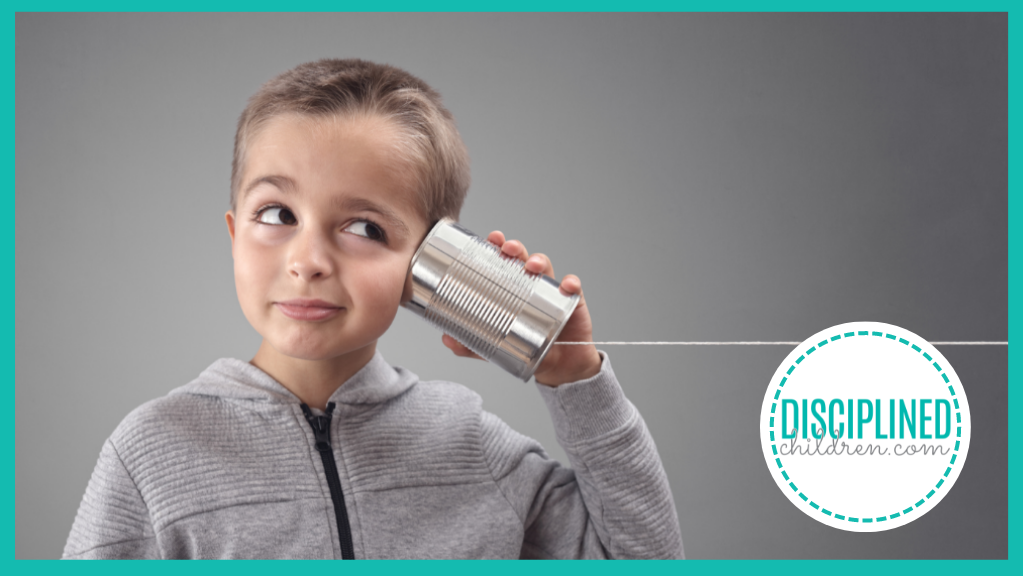





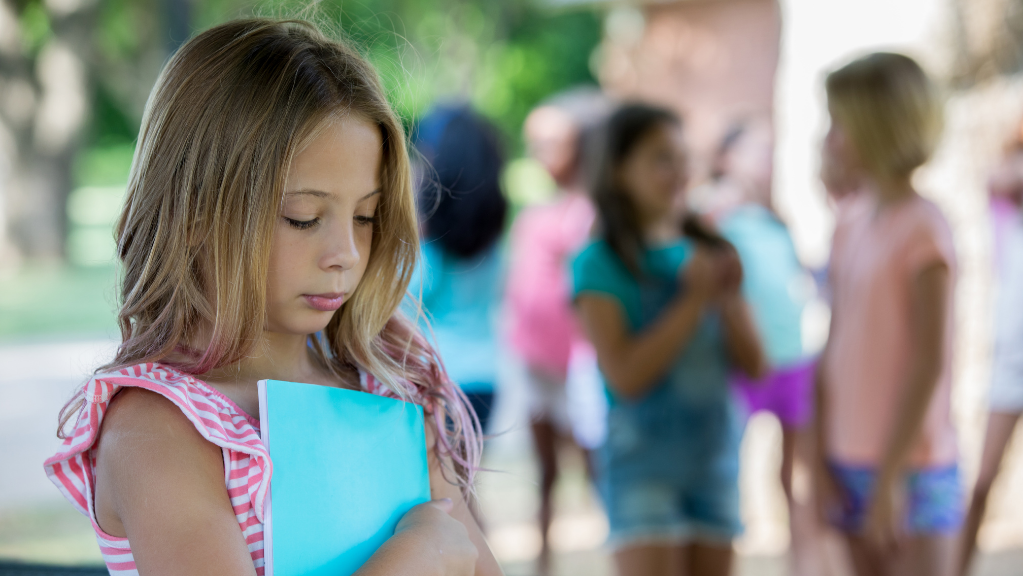
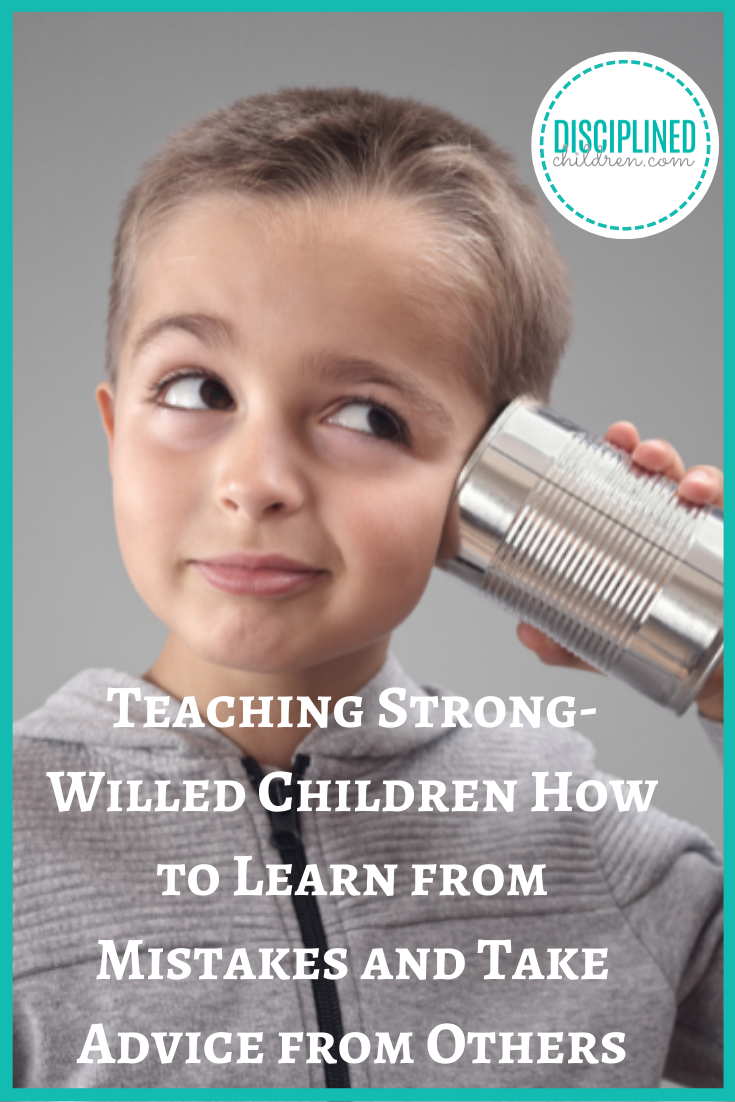

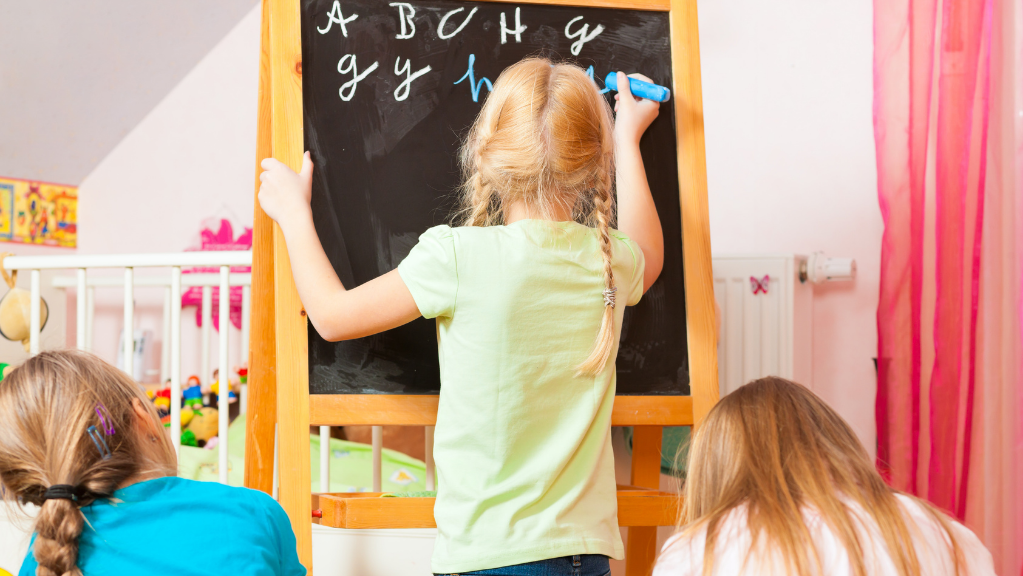
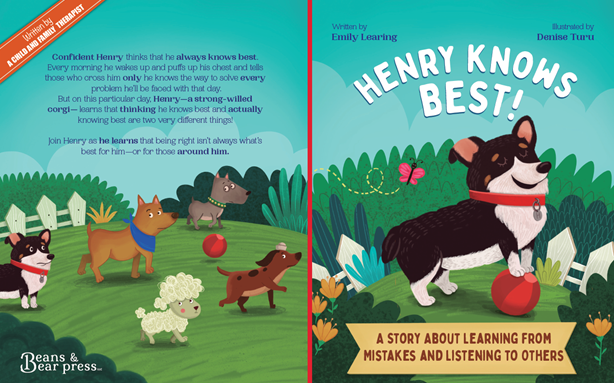
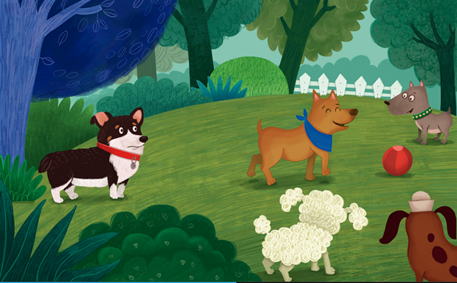
Leave a Comment